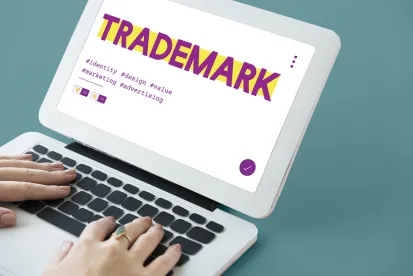In upholding a grocery store chain’s standing to petition for cancellation of a US trademark registration, the US Court of Appeals for the Federal Circuit affirmed the Trademark Trial and Appeal Board’s (TTAB’s) express authority to impose cancellation of a trademark by default judgment as a sanction in a TTAB proceeding. Corcamore, LLC v. SFM, LLC, Case No. 19-1526 (Fed. Cir. Oct. 27, 2020) (Reyna, J.).
SFM owns US federal trademark registrations for the mark SPROUTS for use in connection with its retail grocery store services. SFM filed a petition to cancel Corcamore’s US trademark registration for the mark SPROUT for use in connection with vending machine services, alleging a likelihood of consumer confusion with SFM’s prior trademark rights. The TTAB denied Corcamore’s motion to dismiss the cancellation petition for lack of standing. Relying on Empresa Cubana del Tabaco v. General Cigar Co., the TTAB confirmed SFM’s standing based on its “real interest” in the cancellation petition and a “reasonable belief of damage” caused by the continued registration of Corcamore’s SPROUT trademark.
Following the TTAB’s denial of its motion to dismiss, Corcamore undertook a series willful, bad-faith procedural maneuvers that resulted in two separate sanctions. When Corcamore’s further procedural misconduct violated both sanctions orders, the TTAB entered default judgment cancelling Corcamore’s SPROUT trademark registration. Corcamore appealed.
On appeal, Corcamore alleged that the TTAB (1) erred in applying Empresa Cubana rather than the Supreme Court of the United States’ Lexmark v. Static Control framework in affirming SFM’s standing, and (2) abused its discretion in granting default judgment as a sanction. On the issue of standing, the Federal Circuit rejected the TTAB’s “unduly narrow” conclusion that the Supreme Court’s Lexmark framework was inapplicable, since Lexmark related to a claim of false advertising under § 1125(a) of the Lanham Act, while Empresa Cubana addressed the right to bring a cancellation proceeding under § 1064. The Federal Circuit concluded that Lexmark applied to § 1064 and § 1125(a) because both are statutory causes of action. Nevertheless, the Court found no meaningful substantive difference between the analytical frameworks for standing expressed in Lexmark and Empresa Cubana, and found that the Lexmark “zone-of-interests” proximate cause analysis and the “real interest” and “reasonable belief of damage” requirements under Empresa Cubana similarly provided a right to bring a cause of action. As such, the Court ultimately agreed with the TTAB’s conclusion that SFM’s pleaded allegations of a likelihood of consumer confusion based on a similarity of the parties’ SPROUTS and SPROUT trademarks, and their respective goods and services, were sufficient to demonstrate a reasonable belief of damage under Empresa Cubana and thus supported the right to challenge Corcamore’s registered trademark via cancellation.
With regard to the TTAB’s grant of default judgment, Corcamore did not challenge the TTAB’s express authority to grant default judgment as a sanction under 37 CFR § 2.120(h) and Fed. R. Civ. P. 37(b)(2). Instead, Corcamore argued that the TTAB had no factual or legal basis to enter default judgment in the first place. The Federal Circuit squarely rejected this argument, finding no abuse of discretion in the TTAB’s entry of default judgment as a sanction in response to Corcamore’s discovery misconduct, its failure to appear in a TTAB conference and its failure to timely serve discovery responses.
The Federal Circuit therefore affirmed the TTAB’s conclusion that SFM met the statutory requirements for standing to challenge Corcamore’s registered US trademark, and held that the TTAB did not abuse its discretion in imposing sanctions via a default judgment and cancellation of the SPROUT trademark registration.




 />i
/>i

